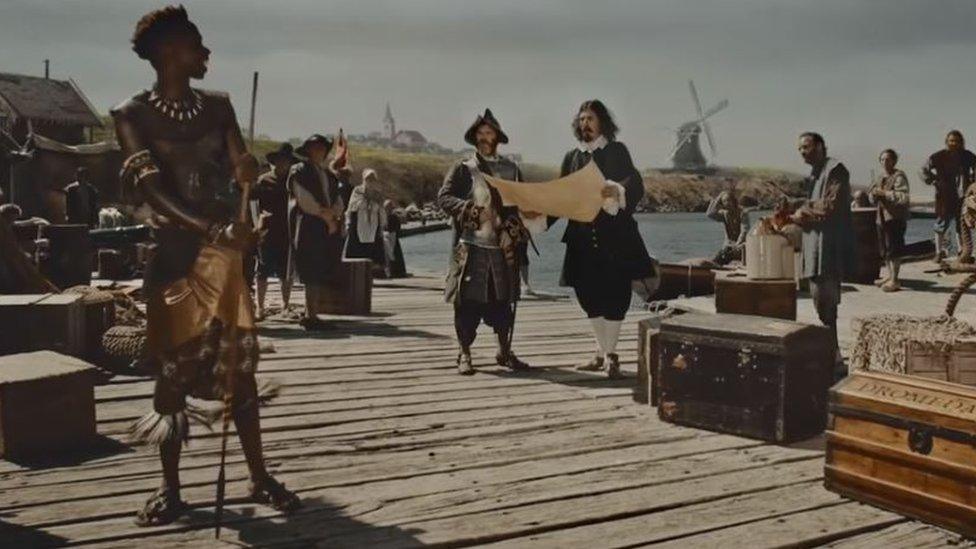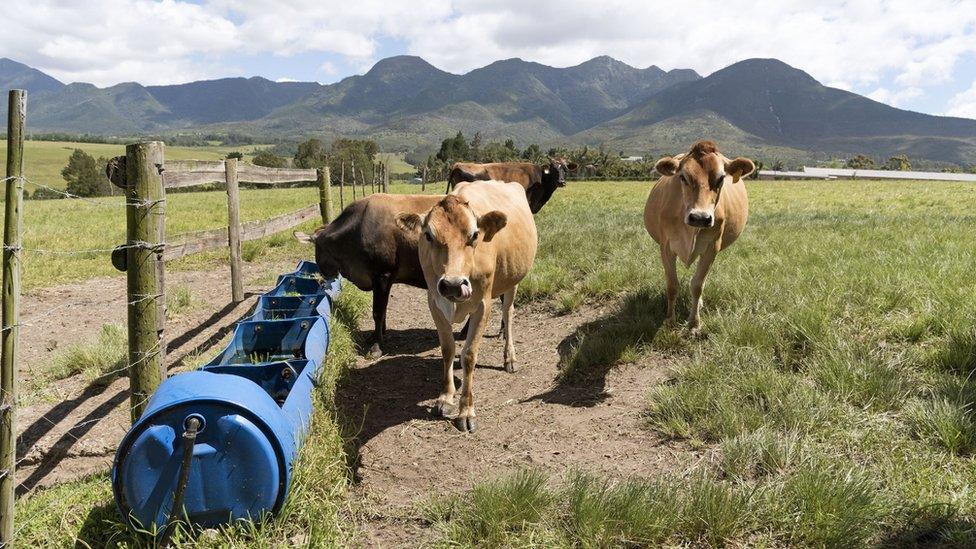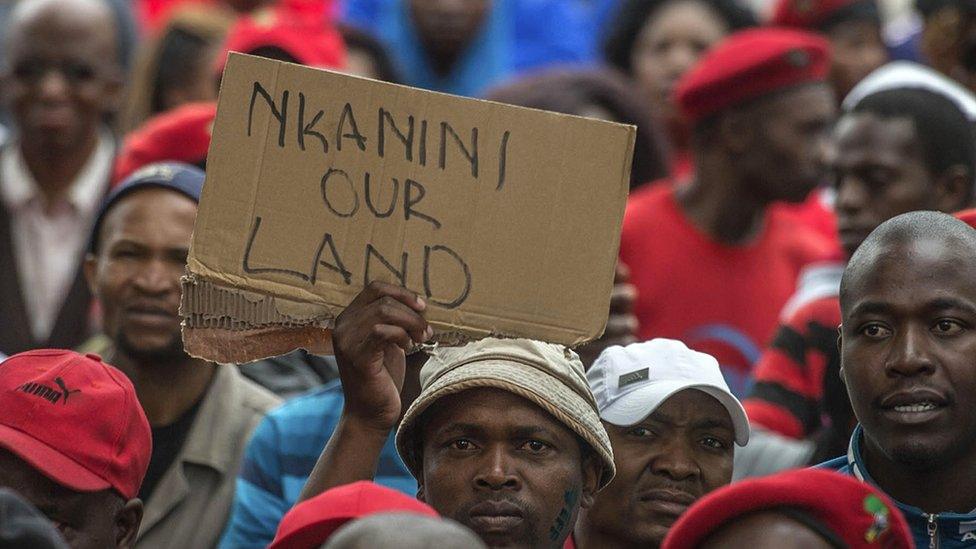South Africa's Chicken Licken colonialism of Europe advert banned
- Published

The advertisement turns colonialism on its head
A fast-food outlet in South Africa has been ordered to withdraw a commercial showing an African explorer conquering Europe in the 17th Century.
The advertising board said colonialism was "traumatic" for Africans and was "not open for humorous exploitation".
Chicken Licken said the advertisement was "tongue-in-cheek" and meant to create "pride" among South Africans.
Dutch navigator Jan van Riebeeck's arrival in South Africa in 1652 started the country's colonisation process.
The advert shows a young African, Big Mjohnana, leaving his village in 1650 to conquer his hunger for adventure.
His boat finally docks in Holland in 1651, and he says in South African slang: "Hello, white folk. I like this place. I think I'll call it Eu...rope," before stomping his spear to signal the land's conquest.
The commercial ends with an elderly African man in a bow tie leaving a Chicken Licken outlet, and saying: "And that is the legend of Big John."

South African Sandile Cele lodged a complaint with the Advertising Regulatory Board, arguing that the commercial made a "mockery of the struggles of the African people against the colonisation by the Europeans in general, and the persecutions suffered at the hands of the Dutch in particular".
Upholding the complaint, the board said: "While the commercial seeks to turn the colonisation story on its head with Big John travelling to Europe, it is well-known that many Africans were in fact forced to travel to Europe in the course of the colonisation of Africa.
"They did not leave their countries and villages wilfully. They starved to death during those trips to Europe and arrived there under harsh and inhumane conditions."
'Rewriting history'
In its submission, Chicken Licken said it was regrettable that the advertisement had been construed as negative as it was intended to show that South Africa had "all the potential to conquer the world and rewrite history from an African perspective".
On Twitter, many people tended to agree with the fast-food chain:
Allow X content?
This article contains content provided by X. We ask for your permission before anything is loaded, as they may be using cookies and other technologies. You may want to read X’s cookie policy, external and privacy policy, external before accepting. To view this content choose ‘accept and continue’.

Allow X content?
This article contains content provided by X. We ask for your permission before anything is loaded, as they may be using cookies and other technologies. You may want to read X’s cookie policy, external and privacy policy, external before accepting. To view this content choose ‘accept and continue’.

Allow X content?
This article contains content provided by X. We ask for your permission before anything is loaded, as they may be using cookies and other technologies. You may want to read X’s cookie policy, external and privacy policy, external before accepting. To view this content choose ‘accept and continue’.

Allow X content?
This article contains content provided by X. We ask for your permission before anything is loaded, as they may be using cookies and other technologies. You may want to read X’s cookie policy, external and privacy policy, external before accepting. To view this content choose ‘accept and continue’.

- Published18 December 2018

- Published23 August 2018

- Published30 May 2018
